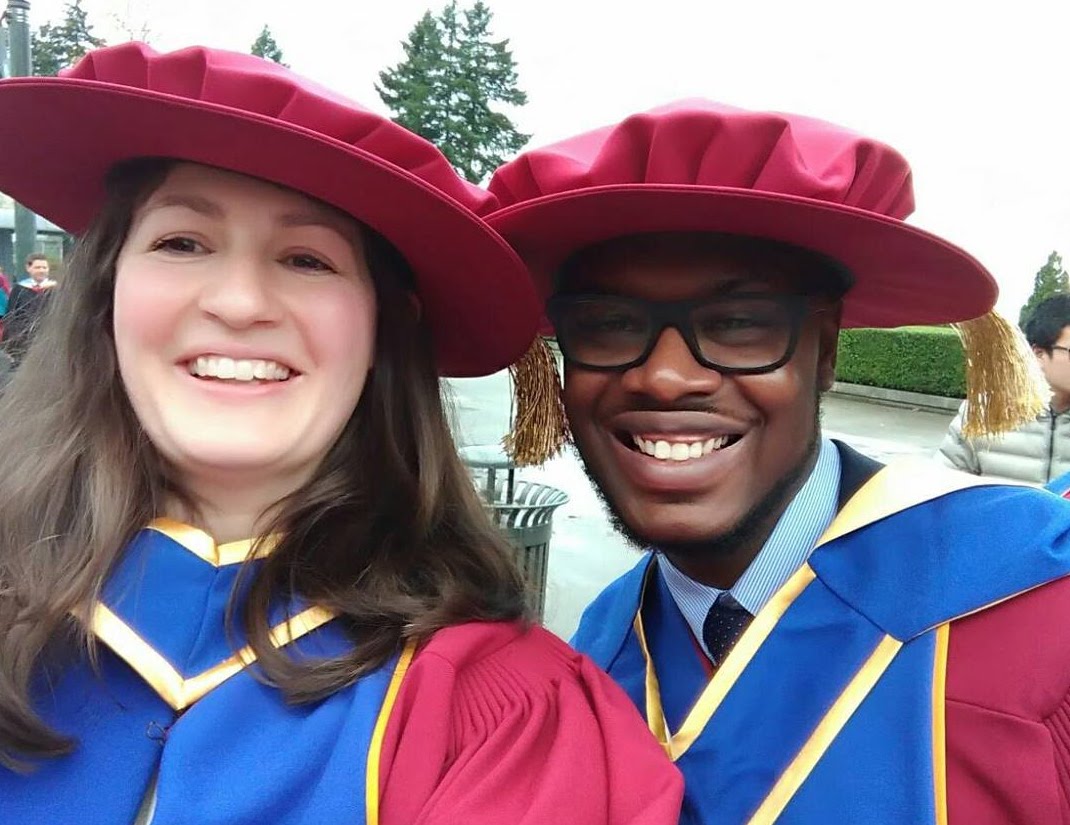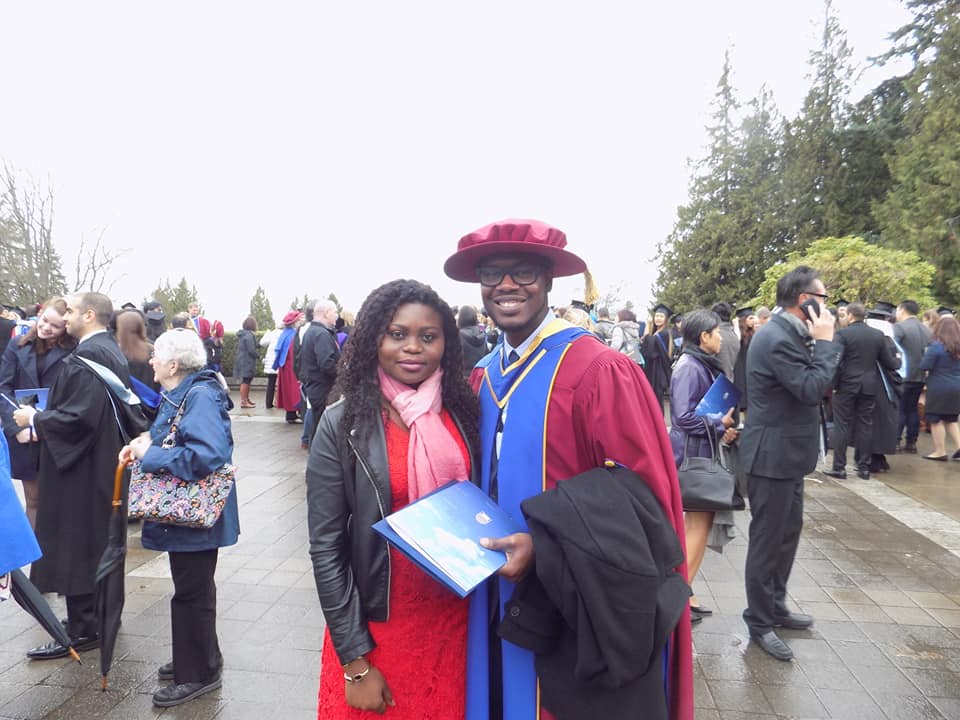There’s tough, and then there’s Tough. It’s unlikely anyone would ever say that Dr. Emmanuel Twumasi Osei travelled Easy Street on the long and bumpy road to his doctorate. Today, though, Dr. Osei will tell you he is extremely proud – delighted, really – to be an Assistant Professor in the Department of Biology UBC Okanagan and Associate Member at the UBC – St Paul’s Centre for Heart Lung Innovation. Just a few years back, that eventuality seemed all but unattainable. It was the UBC joint PhD program that was the catalyst – essentially partnership arrangements with other universities around the world designed to share doctoral candidates, and the costs, as they work towards earning their PhD.
Applying for PhD programs is competitive. But when you come from a developing nation, acceptance is a long shot at best. Costs are so high, many universities simply don’t want to bother. Professors must find money to pay for a PhD candidate on scholarship and it’s the high international rate. In contrast, costs are a fraction, or even nil in countries such as Scandinavia, for a candidate who is funded.
Dr. Osei says he applied to some 200 PhD programs around the world back in 2012. All declined. This was after he completed his degree in biomedical sciences in Ghana, followed by a one-year intensive master’s. That was in medical diagnostics as a Commonwealth Scholar for middle- to low-income countries in 2010 at Cranfield University in Bedford, England. Dr. Osei also secured a coveted spot at a research post there: harvesting rat brain cells to create 3D models, then adding triggers to mimic how cerebral palsy affects organs in the body. “It was amazing!” he recalls. “I was sold.”
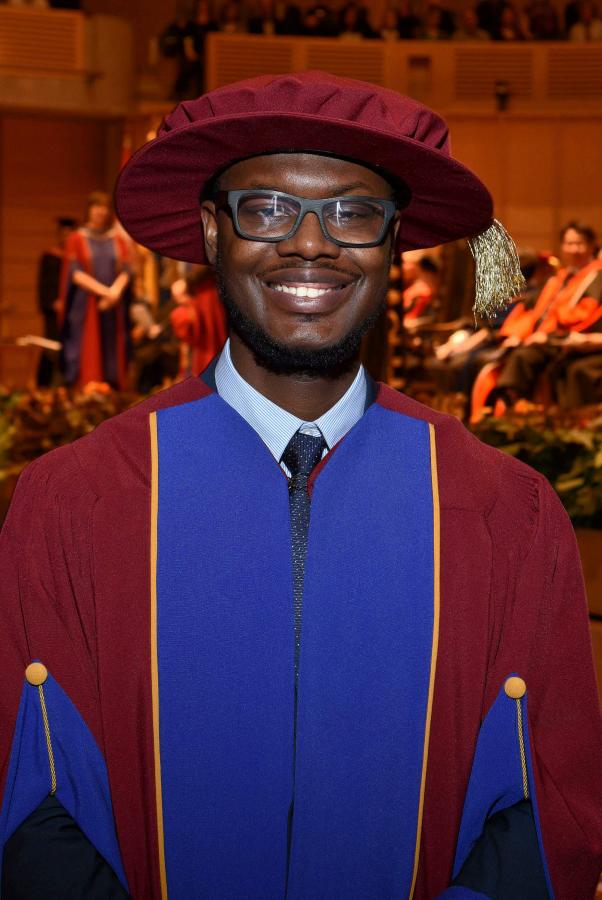
Dr. Emmanuel Twumasi Osei at his UBC graduation in Vancouver in November 2017 (photo: Dr. Emmanuel Twumasi Osei)
England marked the first time Dr. Osei had ever travelled, and the culture shock was jarring. But he also remembers it as “the best period of studying in my life” because he finally for the first time got to apply the principles he had learned. Becoming a science researcher had been Dr. Osei’s lifelong dream since boyhood growing up in Sunyani, Ghana. After not one university contacted him about a PhD, he concluded that dream wasn’t going to happen. He packed up his belongings and returned to Ghana – and his former school (University of Science and Technology) in a position as a medical school assistant lecturer.
A year-plus later, an email arrived from Groningen University in Holland, inviting Dr. Osei to interview for a joint PhD program with UBC. He was convinced it was some kind of scam, so felt relaxed and chatty during the subsequent webcam interview. Fortuitously, the project centered on building artificial models to study communication between structural cells in the lung – similar to his UK investigations – at the Groningen Research Institute for Asthma and COPD. In short order, Dr. Osei received a welcome letter to the program. He jetted off to the Netherlands in 2013 for two years of a joint project between two lab groups, then on to Canada and UBC’s Vancouver campus for the final two years in Dr. Tillie-Louise Hackett’s lab to investigate factors that play a role in asthma.
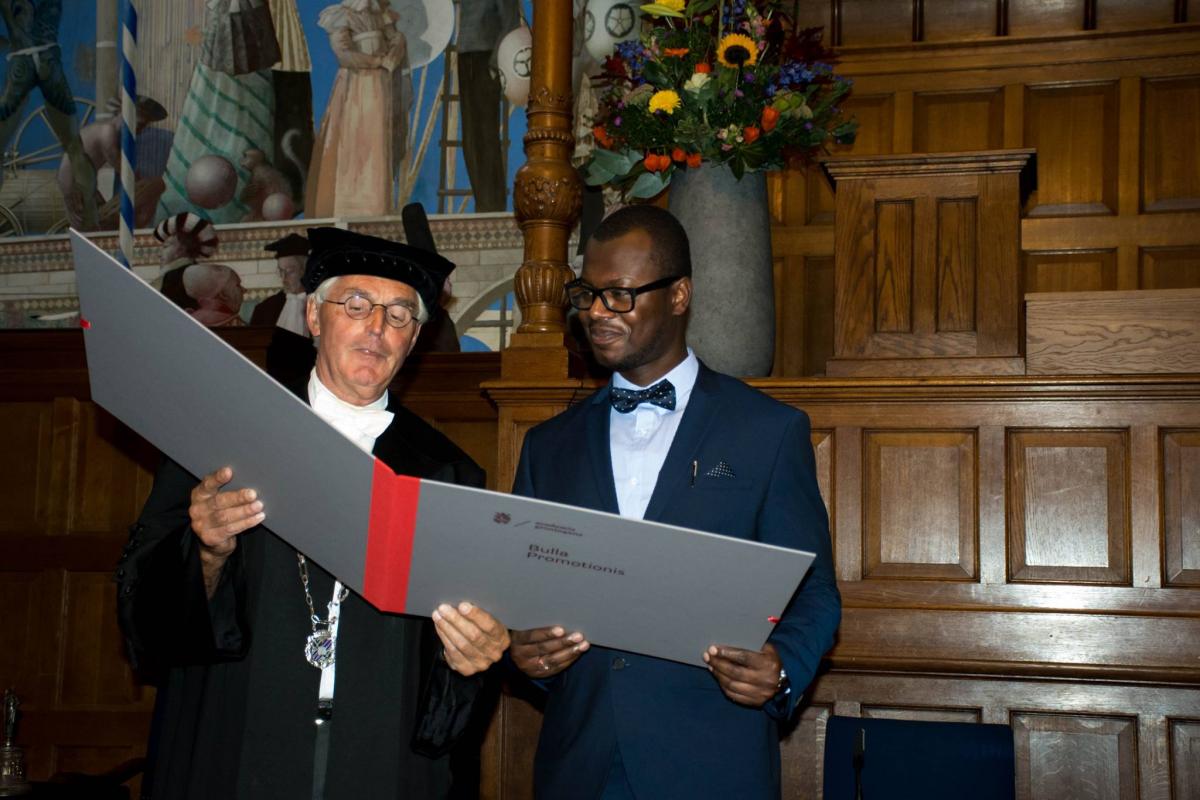
After the candidate is adjudged as passed, he is "promoted" to the rank of PhD and presented with his "Bulla," the traditional PhD certificate from University of Groningen (photo: Dr. Emmanuel Twumasi Osei)
Behind the scenes, Dr. Hackett, a lung and asthma specialist at St. Paul’s Hospital, was working to make it all happen: mentoring, managing, applying for grants, putting together presentations, finding funding for experiments, even buying furniture at IKEA and shopping for groceries for COVID-self-isolators. Her nickname was the “Lab Mom,” recalls Dr. Osei. That Lab Mom also paid Dr. Osei’s salary for a year out of her operating budget after post-grad so that he could apply for Permanent Residence status, the ticket to a chance at remaining in Canada. She has supported four international MSc/PhD students since 2014.
“People applying for this opportunity are very motivated, highly qualified students,” says Dr. Hackett, a Tier 1 Canada Research Chair in Asthma and COPD Lung Pathobiology and Therapeutics, Director of HLI James Hogg Lung Registry and UBC Professor in the Department of Anesthesiology, Pharmacology & Therapeutics. “These people wouldn’t have this opportunity otherwise to pursue what they love: research. I get probably 10-plus emails every day from Iran, Nigeria, India, from candidates who want to join our graduate program – and unless they have a supervisor, they can’t. The catch is supervisors must provide all of the funding as international students are not eligible for many Canadian studentship awards.”
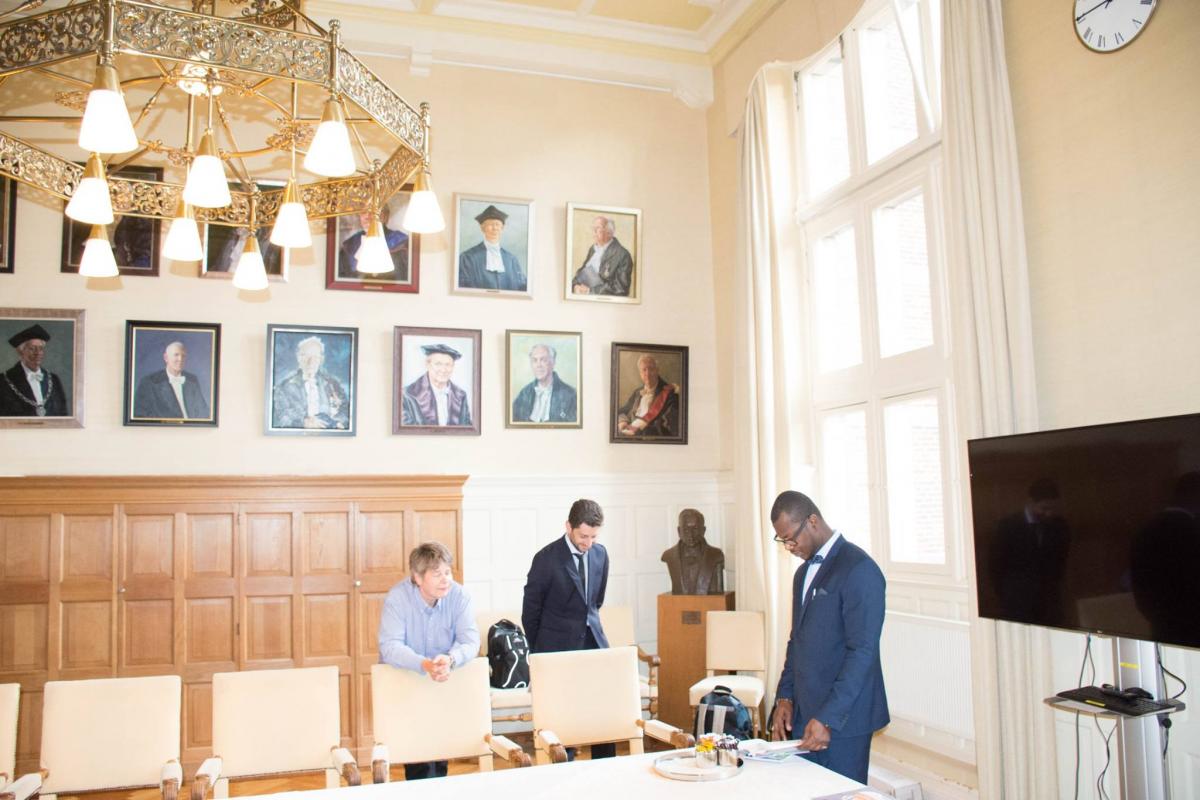
As part of the PhD "promotie" ceremony, the candidate waits in the aptly-named "Sweat Room" (in Dutch, Zweetkamertje) (photo: Dr. Emmanuel Twumasi Osei)
UBC Vice-Provost International Dr. Murali Chandreshekaran spoke with Dr. Hackett and Dr. Osei about the issues involved with the UBC joint-PhD program:
Dr. Chandrashekaran: Emmanuel, did you ever think you’d be a science researcher working in Canada?
Dr. Osei: Honestly, no – not after applying to all of those PhD programs in 2012 without success. I had given up. As a biomedical laboratory scientist, my main areas of study were biochemistry, chemical pathology, hematology, microbiology and histopathology. I’d wanted to take one of those fields of research, go deeper and specialize. But that level of research is not available in Ghana for most of these areas. The few well-developed high-level research areas in Ghana, such as microbiology, are choked with a lot of competition. Options are very limited – and limited for people like me from many areas of the world. I wanted to experience the highest level of education I could get in the field I chose, which ended up being cell biology because of my affinity for anatomy and histopathology.
Dr. Chandrashekaran: What are the main benefits for partner universities offering a joint PhD?
Dr. Osei: Look, I am a living connection between these two centres. It bolsters the interconnectivity and collaboration between both universities. I am collaborating with all my primary colleagues now still today. We shared offices, labs, did joint experiments. It’s economical for the universities because they use only half the resources – and they have the products of this collaboration. It opens up opportunities for both to access grants and programs available for international collaborations like this, and resources can be shared.
Dr. Chandrashekaran: And for the PhD candidates?
Dr. Osei: Individually, it’s amazing. The whole markets of Europe and North America are now open to me. On the face value, there is definitely a lot more value than a one-university PhD. The experience shows you’re somebody who can successfully manage any project, anything thrown at you if you can manage two different locations, teams and projects. The depth of resources and depth of exposure cannot be compared to any other PhD done in a single place.
Dr. Chandrashekaran: Tillie, what do you think UBC can do today, right now?
Dr. Hackett: For us, committing to someone internationally for four years, even two years, is quite a strain on a research funding. If we really want to support these global interactions and stories, and help the world, sometimes that involves investing more. I think the idea of establishing an inclusion fellowship is the way to go. As an immigrant myself (from England), I believe diversity actually helps the lab. I’m very fixed on it.
Learn more about UBC’s joint PhD program.
Find out more about UBC’s Centre for Heart Lung Innovation.
Read about UBC’s Department of Anesthesiology, Pharmacology & Therapeutics.
Read about UBCO’s Biology Department.

